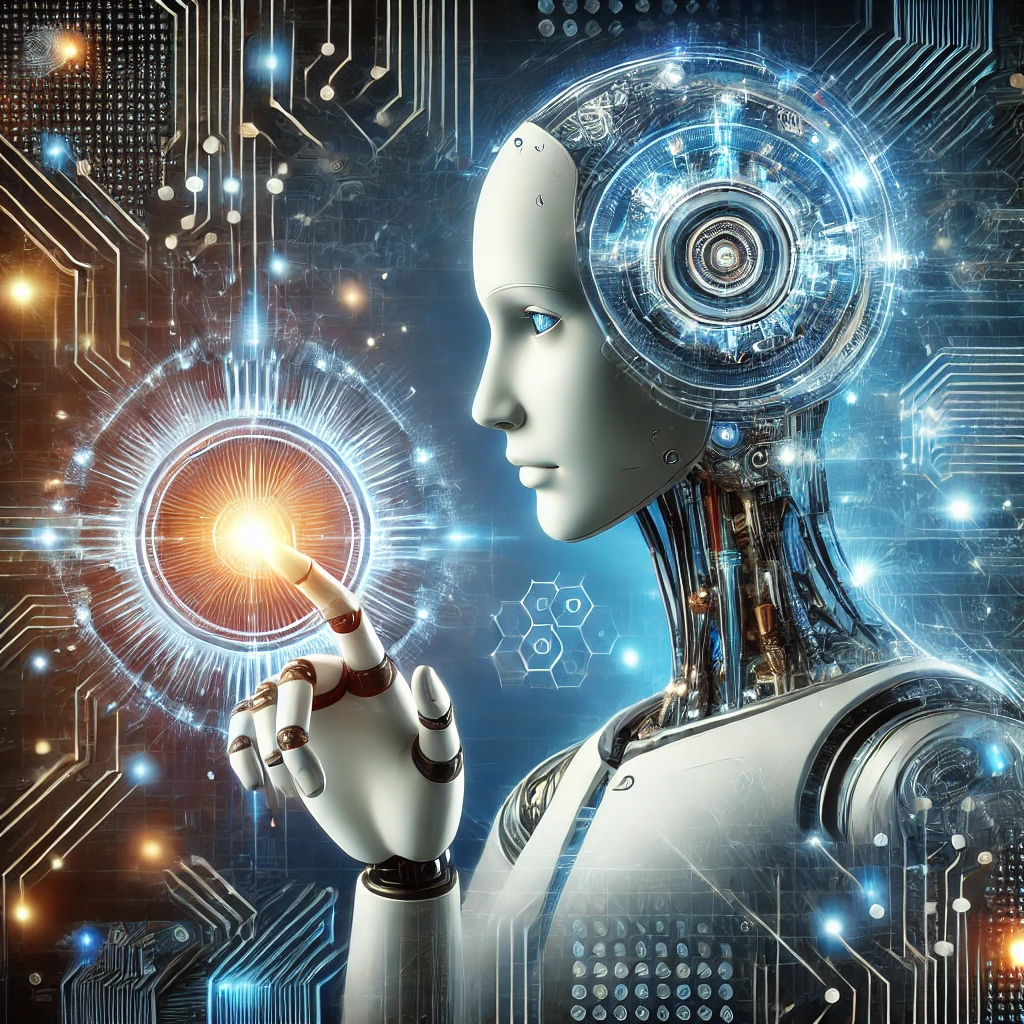Artificial intelligence, often called AI, is a fascinating field that is changing the world around us. In simple terms, AI refers to machines or computer systems that can perform tasks that usually require human intelligence. These tasks include understanding language, recognizing images, solving problems, and even making decisions.
AI is all around us, even if we don’t always realize it. For example, when you use your smartphone to search for something on the internet, AI helps provide the most relevant results. Voice assistants like Siri, Alexa, and Google Assistant use AI to understand and respond to your questions. Even when you watch movies or listen to music online, AI suggests content based on what you’ve enjoyed in the past.
One way AI works is by learning from data. This is called “machine learning.” Imagine teaching a computer to recognize pictures of cats. You would show it thousands of pictures of cats and explain, “This is a cat.” Over time, the computer starts to notice patterns and can eventually identify cats in new pictures on its own. The more data it processes, the better it gets at recognizing cats.
Another type of AI focuses on mimicking how humans think. This is known as “deep learning,” which involves creating systems inspired by the human brain. These systems can analyze vast amounts of information, identify patterns, and even make decisions, much like a person would. For instance, AI systems can help doctors diagnose diseases by analyzing medical scans or improve safety in cars by powering self-driving technology.
AI has many benefits. It makes our lives easier by automating repetitive tasks, like sorting emails or managing schedules. In businesses, AI helps improve efficiency and productivity by analyzing data faster than any human could. It is also transforming industries like healthcare, education, transportation, and entertainment, making them smarter and more accessible.
However, AI also raises important questions and challenges. For example, as AI systems become more advanced, some people worry about jobs being replaced by machines. Others are concerned about privacy, as AI often relies on personal data to work effectively. There are also ethical questions about how AI should be used and who gets to decide its role in society.
To ensure AI benefits everyone, it’s important to use it responsibly. This means creating fair and unbiased systems, protecting people’s privacy, and being transparent about how AI is used. Many researchers and organizations are working on guidelines and regulations to ensure AI serves humanity in the best possible way.
In conclusion, artificial intelligence is an exciting and powerful technology that has the potential to change our lives for the better. From helping us in our daily tasks to solving big global challenges, the possibilities are endless. As AI continues to grow, understanding it and using it wisely will be key to unlocking its full potential.






